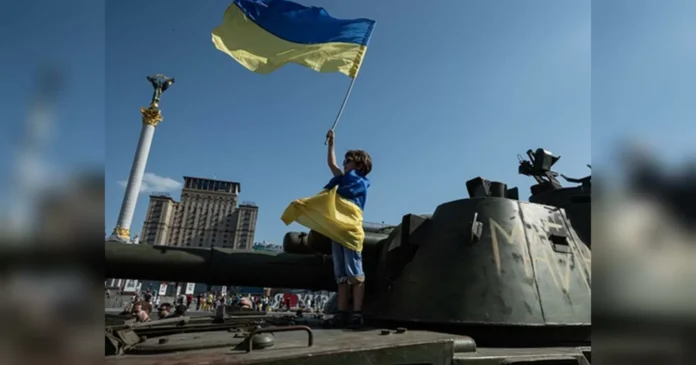As Ukraine continues to navigate through turbulent political and economic times, one thing remains paramount: the need for security. With an aggressive neighbor like Russia, finding guarantees of security that do not provoke further aggression from Putin has become a top priority for the Ukrainian government.
Since gaining independence in 1991, Ukraine has faced numerous security challenges, including territorial disputes, cyber attacks, and military aggression from Russia. The annexation of Crimea in 2014 and the ongoing conflict in eastern Ukraine have only heightened the urgency for finding effective security measures.
However, the search for such guarantees has been complicated by the fact that any action taken by Ukraine to protect itself can be seen as a provocation by Putin. The Russian government has consistently used the pretext of “protecting ethnic Russians” to justify its aggressive actions in Ukraine. This has created a delicate balancing act for Ukraine, as it seeks to defend its sovereignty while avoiding any actions that could escalate tensions with its neighbor.
One approach that Ukraine has taken is to strengthen its ties with other countries and international organizations. Since the annexation of Crimea, Ukraine has deepened its cooperation with NATO, the European Union, and other Western allies. This has resulted in increased military aid, training, and joint exercises, providing Ukraine with valuable support in its defense efforts.
In addition, Ukraine has also implemented various reforms to improve its security and defense capabilities. This includes modernizing its armed forces, increasing military spending, and implementing anti-corruption measures in the defense sector. These efforts have not only helped to strengthen Ukraine’s defense capabilities but also demonstrate its commitment to being a responsible and reliable partner in international security.
Another important aspect of Ukraine’s search for security guarantees is its diplomatic efforts. Despite the ongoing conflict, Ukraine has remained committed to finding a peaceful resolution through negotiations with Russia. This includes participating in various peace talks and agreements, such as the Minsk agreements, which aim to end the conflict in eastern Ukraine.
Furthermore, Ukraine has also been working to improve its relations with Russia. Despite the tensions, Ukraine recognizes the importance of maintaining dialogue with its neighbor and has taken steps to de-escalate tensions. This includes facilitating prisoner exchanges and maintaining open channels of communication, even during times of heightened tensions.
However, while these efforts are crucial, they alone may not be enough to guarantee Ukraine’s security. One of the biggest challenges is ensuring that Russia complies with international law and respects Ukraine’s sovereignty. This requires a united front from the international community in holding Russia accountable for its actions in Ukraine and imposing consequences for any further aggression.
Moreover, it is essential for Ukraine to continue its efforts towards internal stability and development. This includes addressing issues such as corruption, economic reforms, and strengthening democratic institutions. A stable and prosperous Ukraine will not only be more resilient to external threats but also serve as a model for other countries in the region.
In conclusion, the search for guarantees of security for Ukraine is an ongoing and complex process. It requires a multifaceted approach that includes strengthening ties with international partners, implementing reforms, and diplomatic efforts. However, ultimately, it will also require the cooperation of Russia and the international community in upholding international law and respecting Ukraine’s sovereignty. With determination, resilience, and support from its allies, Ukraine can continue to defend itself and pursue a peaceful resolution to the conflict with Russia.

